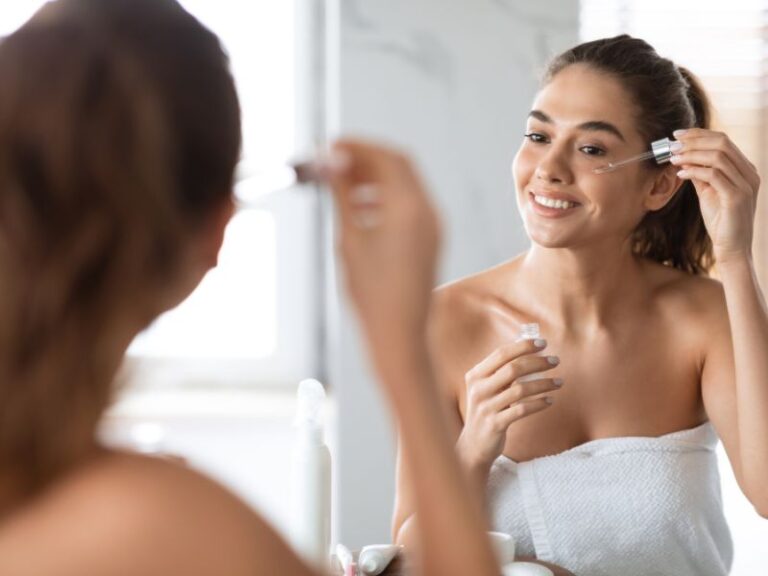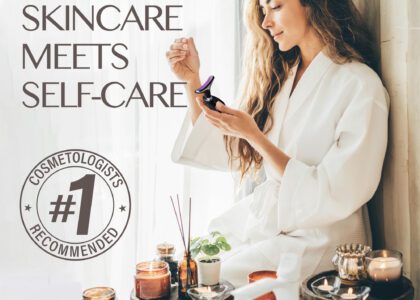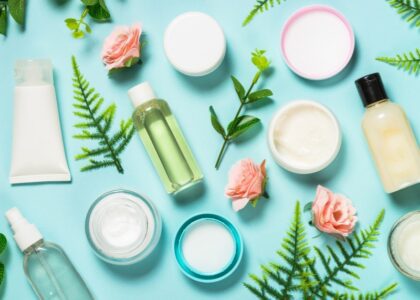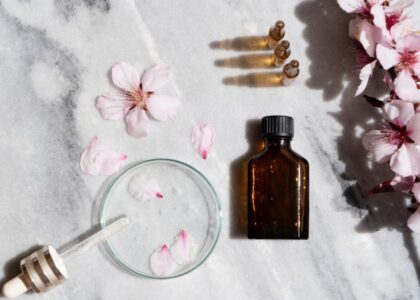Waking up with glowing, radiant skin isn’t just a dream—it can totally be your reality. I mean, who doesn’t want to roll out of bed looking refreshed and luminous? 😍 With the right **overnight skincare routine**, it’s possible! Over the years, I’ve picked up a few tricks that have helped transform my skin while I sleep, and now, I’m here to share them with you. From double cleansing to optimizing your sleep environment, these tips are foolproof. Let’s dive in and discover the secrets to waking up with skin that practically shines.
Table of Contents
- 1. Double Cleansing for a Fresh Start
- 2. Apply a Potent Night Serum
- 3. Use an Overnight Hydrating Mask
- 4. Optimize Your Sleeping Environment
- 5. Focus on Eye Care
- Conclusion
1. Double Cleansing for a Fresh Start
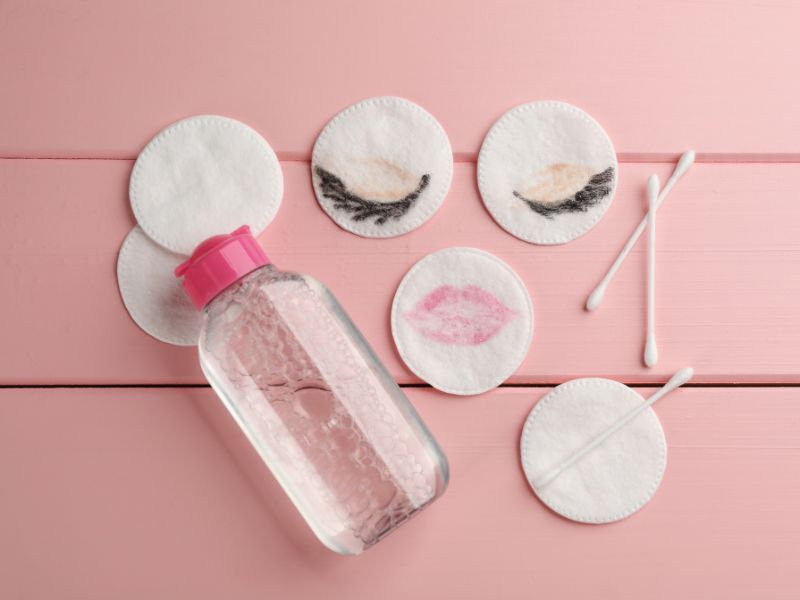
Let’s kick things off with a little double cleansing action. 🧼 The idea here is simple: clean skin equals better results. Double cleansing ensures that your skin is free from makeup, dirt, and all the other gunk from the day, so your skincare products can really do their magic. Plus, it’s a must-do if you wear makeup or sunscreen (which you should be wearing every day, right?).
- Step 1: Oil-Based Cleanser: Start with an oil-based cleanser to break down makeup and sunscreen. Massage it gently into your skin to remove impurities without stripping away natural oils. Oil cleansers are amazing at dissolving waterproof products like mascara.
- Step 2: Water-Based Cleanser: Follow up with a water-based cleanser to wash away any leftover residue. This leaves your skin feeling fresh and squeaky clean without that tight, dry feeling. I recommend a sulfate-free formula that’s gentle on the skin.
- Why Double Cleansing Matters: Throughout the day, our skin is exposed to dirt, pollutants, and oils that clog pores and cause breakouts. Double cleansing is the best way to thoroughly cleanse and prep your skin for nighttime treatments.
Dermatologists rave about double cleansing because it prevents breakouts and clogged pores, making it a must for anyone with oily or acne-prone skin. Learn more about the benefits of double cleansing in our detailed guide.
2. Apply a Potent Night Serum
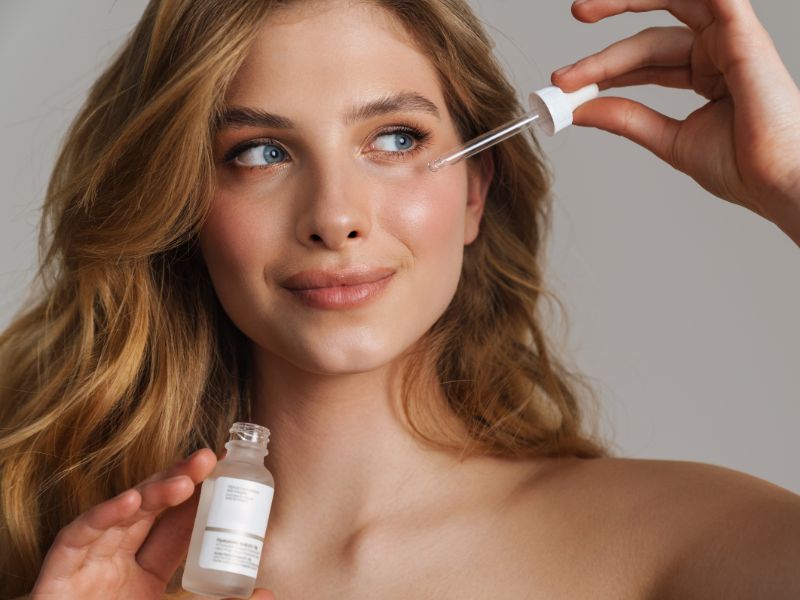
This is where the magic happens. 🌟 While you sleep, your skin goes into repair mode, which makes nighttime the perfect time to apply a serum packed with active ingredients. Serums are more concentrated than moisturizers and can penetrate deeper, delivering results where your skin needs them most. Whether you’re fighting fine lines, dark spots, or dullness, there’s a night serum for that.
- Retinol for Anti-Aging: Retinol is a powerful ingredient that increases cell turnover and reduces fine lines and dark spots over time. If you’re new to retinol, start with a low concentration to avoid irritation. Trust me, your skin will thank you in the morning when it looks smoother and more radiant.
- Hyaluronic Acid for Hydration: If your skin gets dry overnight, reach for a serum with hyaluronic acid. It’s a hydration powerhouse, capable of holding 1,000 times its weight in water. This will leave your skin plump and dewy by morning.
- Antioxidants for Protection: Serums with Vitamin C, niacinamide, or peptides work overnight to fight free radicals and brighten your complexion. They also help repair the damage caused by daily exposure to pollution and UV rays.
Pro Tip: Apply your serums to slightly damp skin for maximum absorption and better results. You’ll wake up with a smoother, more hydrated face! Learn more about how to choose the best night serum for your skin type here.
3. Use an Overnight Hydrating Mask
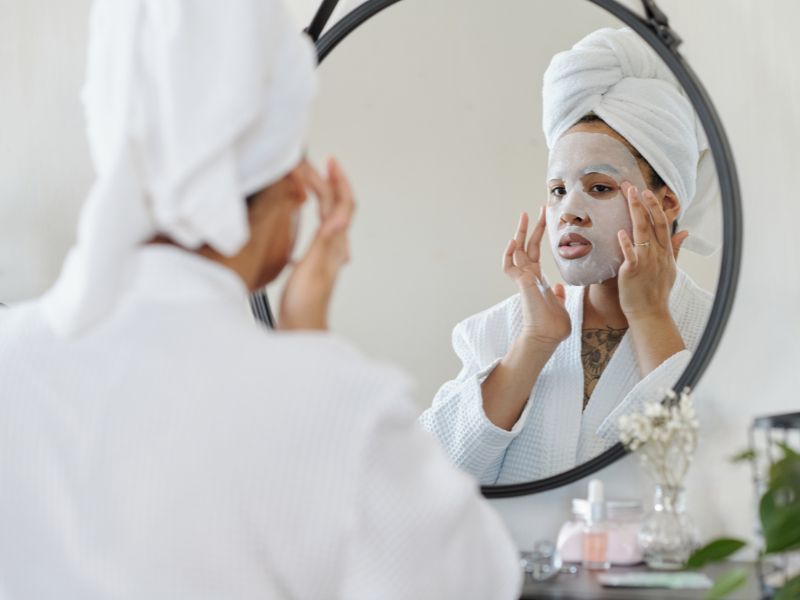
If you haven’t tried an overnight mask yet, you’re missing out! 💦 These masks work while you sleep, providing your skin with an extra boost of moisture and nutrients. The best part? You don’t have to wash them off—they stay on all night to lock in hydration.
- Niacinamide for Brightening: Look for overnight masks with niacinamide if you want to wake up with brighter, more even-toned skin. Niacinamide is also great for reducing the appearance of pores and controlling oil production.
- Rich, Creamy Formulas: For dry or sensitive skin, choose a mask with ingredients like shea butter, ceramides, or glycerin. These ingredients help to strengthen the skin’s barrier and lock in moisture, so you wake up with a dewy glow.
- Frequency: Some overnight masks are gentle enough to use daily, but others might be best for 2-3 times a week. It all depends on your skin’s needs—just pay attention to how it reacts and adjust accordingly.
Overnight masks can seriously change your skin’s hydration levels. They’re a great way to treat yourself to a spa-like experience at home. Check out our top picks for the best overnight masks here.
4. Optimize Your Sleeping Environment
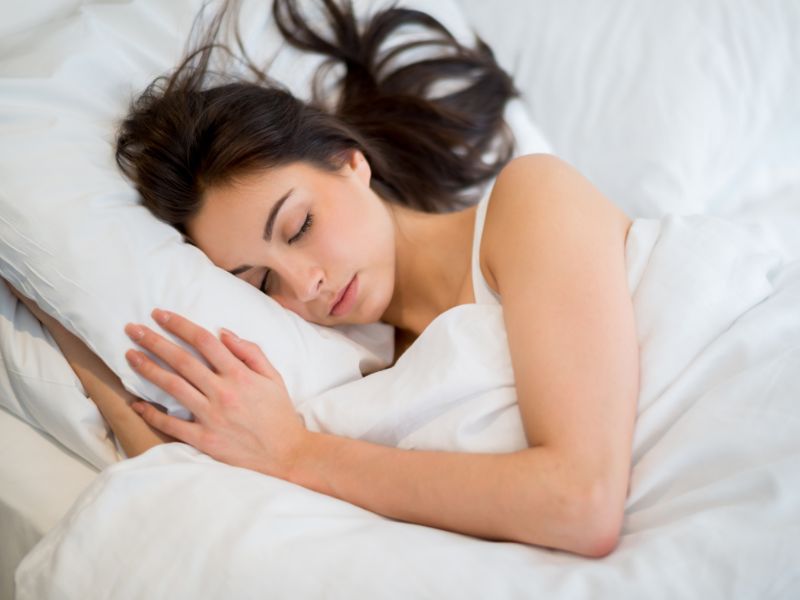
Your skincare routine doesn’t stop at the products you use—your **sleeping environment** plays a huge role in the health of your skin too. 💤 By making a few tweaks, you can create an atmosphere that supports skin recovery and prevents issues like dryness or irritation overnight.
- Use a Humidifier: If you live in a dry climate (or it’s wintertime), adding a humidifier to your bedroom can work wonders for your skin. It helps maintain moisture in the air, which prevents your skin from drying out overnight.
- Switch to a Silk Pillowcase: Silk pillowcases are super gentle on your skin and can help reduce friction, which minimizes wrinkles and irritation. Plus, they don’t absorb moisture the way cotton does, so your expensive serums stay on your face, not your pillow!
- Dark, Cool Room: A dark, cool room (around 65°F or 18°C) is perfect for deep sleep and skin recovery. Darkness helps stimulate melatonin production, which has antioxidant properties that benefit your skin.
- Clean Bedding: Regularly wash your pillowcases and sheets to avoid the buildup of oil, sweat, and bacteria that can clog pores. Fresh bedding = happy skin.
Pro Tip: Add a few drops of lavender essential oil to your pillow for a calming effect that promotes relaxation and better sleep. Learn more about how to create the perfect sleep environment for your skin here.
5. Focus on Eye Care
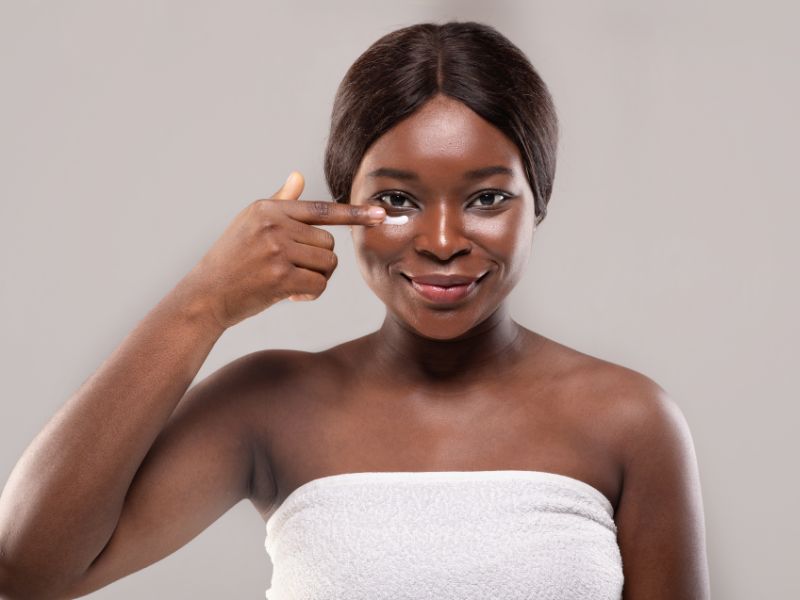
The delicate skin around your eyes is the first to show signs of fatigue and aging. If you’re like me and struggle with dark circles or puffiness, **eye care** should be a priority in your nighttime routine. 👀 The thin skin here is more prone to dehydration, so let’s give it some extra love.
- Rich Eye Cream: Use an eye cream with peptides to firm the skin, and caffeine to reduce puffiness. Peptides help boost collagen production, while caffeine helps drain fluid buildup, making you look more awake.
- Cooling Eye Masks: Gel eye masks are fantastic for cooling and soothing tired eyes. Pop them in the fridge before applying for an extra burst of refreshment. The cool temperature also helps reduce swelling.
- Gentle Massage: Using your ring finger (the gentlest one), lightly tap and massage around your eyes to stimulate circulation. This helps reduce puffiness and enhances the absorption of your eye cream.
- Watch Your Sleep Position: Sleeping on your back can prevent fluid from pooling under your eyes, which helps reduce puffiness. If you’re a side or stomach sleeper, consider propping your head up with an extra pillow.
Consistent eye care can keep those fine lines and dark circles at bay. Discover how peptides can transform your eye care routine here.
Conclusion
So there you have it—**five overnight skincare secrets** that will help you wake up with a glowing, radiant complexion. 💖 Whether you’re double cleansing or using a rich night serum, the key is to find what works best for your skin and stick with it. Consistency is everything when it comes to skincare. Start tonight, and you’ll be amazed at how your skin transforms with just a few simple tweaks.
Want to know more about protecting your skin from daily damage? Read our in-depth guide on antioxidants and their role in skincare here.

Disclaimer: The information provided in this article is for educational and informational purposes only and is not intended as medical advice. Please consult with a healthcare professional or dermatologist before using any new skincare products or treatments, especially if you have sensitive skin or underlying health conditions. The use of any products or treatments mentioned in this article is at your own risk.

